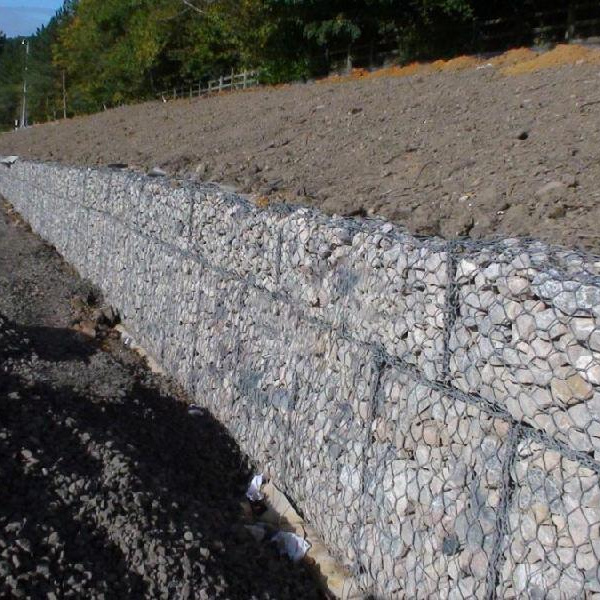Nov . 08, 2024 08:20 Back to list
Affordable Gabion Wall Solutions for Effective Erosion Control and Environmental Protection
Wholesale Gabion Wall for Erosion Control An Effective Solution for Sustainable Infrastructure
Erosion is a persistent issue affecting landscapes globally, leading to environmental degradation and threatening both human infrastructure and natural habitats. As cities expand and climate change intensifies, effective erosion control methods are paramount. One of the most innovative and sustainable solutions that have gained popularity in recent years is the use of gabion walls. These structures not only provide practical solutions for erosion control but also offer aesthetic and ecological benefits.
What are Gabion Walls?
Gabion walls are structures made from wire mesh baskets filled with stones, rocks, or other durable materials. The term “gabion” comes from the Italian word gabbione, meaning “large cage.” Traditionally used in civil engineering, gabion walls have proven effective in managing soil erosion, controlling water flow, and providing stability to slopes. Their versatility allows them to be employed in various settings, from riverbanks to hillside residential properties.
Advantages of Gabion Walls for Erosion Control
1. Cost-Effective Solutions Purchasing gabion walls in wholesale quantities can significantly reduce costs for construction projects. The materials needed for gabion walls (such as rocks and metal mesh) are often readily available and affordable, making them an economically viable option for large-scale erosion control initiatives.
2. Environmental Benefits Gabions are an eco-friendly choice as they promote natural vegetation growth. Over time, soil and plant life can establish themselves within the gaps of the rocks, leading to a more stable ecological environment. Moreover, the porous nature of gabion walls allows water to pass through, reducing runoff and promoting groundwater recharge.
wholesale gabion wall for erosion control

3. Durability and Longevity When constructed properly, gabion walls can last for decades. The materials used in gabion structures—such as galvanized steel or stainless steel wire—are designed to withstand harsh weather conditions, reducing the need for frequent repairs or replacements. This durability not only ensures effectiveness in erosion control but also enhances the overall integrity of the surrounding landscape.
4. Aesthetic Appeal Gabion walls offer flexibility in design, allowing them to blend seamlessly into various architectural and natural settings. They can be customized with different sizes of stones and shapes, making them not just functional barriers but also attractive landscaping features. This aesthetic versatility is advantageous for both public spaces and private properties.
5. Ease of Installation Unlike traditional retaining walls that require heavy machinery and extensive labor, gabion walls are relatively easy to install. Their modular nature allows for quick assembly, making them an efficient choice for erosion control projects, especially in areas where speed is critical.
Applications Beyond Erosion Control
While gabion walls are primarily known for their effectiveness in preventing soil erosion, their uses extend far beyond this function. They are often employed for riverbank stabilization, road construction, and as noise barriers. Additionally, they can be used in landscaping to create unique outdoor features such as seating walls, planters, and decorative fencing.
Conclusion
Wholesale gabion walls present an innovative, cost-effective, and environmentally friendly solution to the pressing issue of erosion control. Their durability, ease of installation, and aesthetic appeal make them a superior choice for both urban and rural applications. As we face the challenges posed by climate change and rapid urbanization, embracing sustainable practices like gabion construction will be crucial in preserving our natural landscapes and infrastructure. Investing in gabion walls today not only safeguards our environment but also lays the groundwork for resilient communities in the future.
-
Versatility of Chain Link Fence Gabion
NewsMay.13,2025
-
Trusted Gabion Box Suppliers
NewsMay.13,2025
-
PVC Coated Gabion for Long-Lasting Structural Integrity
NewsMay.13,2025
-
Garden Gabion for Stylish
NewsMay.13,2025
-
Galvanized Gabion for Durable Outdoor Structures
NewsMay.13,2025
-
Gabion Box Factory
NewsMay.13,2025
-
Gabion Basket Wire Gauge and Mesh
NewsMay.13,2025






